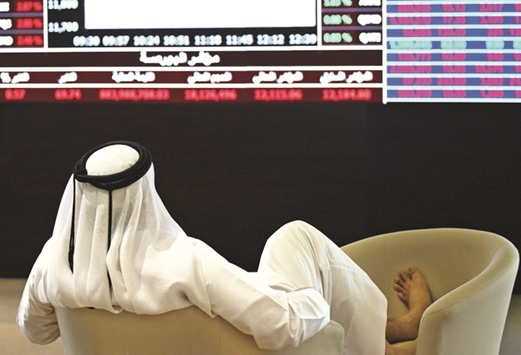As many as 21 of the 44 stocks listed on the Qatar Stock Exchange (QSE) have been found eligible to be included in the FTSE Russell global market equity index. Of the 21, half are large-cap equities.
The eligible constituents are Aamal Company, Al Meera Consumer Goods, Barwa, Commercial Bank, Doha Bank, Ezdan Holding, Industries Qatar, Masraf Al Rayan, Medicare Group, Ooredoo, Qatar Electricity and Water, Nakilat, Qatar Insurance, QIIB, Qatar Islamic Bank, QNB, Milaha, Qatari Investors Group, Salam International Investment, United Development Company and Vodafone Qatar.
This announcement comes in the wake of FTSE Russell deciding to upgrade Qatar next month to emerging market category from the frontier status, a move seen to witness higher funds inflow from overseas.
“Further to the notice released on August 15, 2016 regarding the reclassification of Qatar from frontier to secondary emerging market status within the FTSE Country Classification scheme, FTSE Russell announces the indicative list of Qatari companies which will be eligible for addition to the FTSE Global Equity Index Series at the September 2016 review,” London-based index compiler said.
As per the indicative list of FTSE Russell, among the eligible stocks, 11 of them are large caps, six mid-caps, three small caps and one micro-cap.
Selective speculation on individual scrips to be included in the FTSE Russell index had last week resulted in a large one-day gain, whose sustainability had been questioned by many financial experts. The QSE has already been upgraded to emerging markets by MSCI and Standard & Poor’s-Dow Jones.
As part of efforts to improve liquidity, the bourse had allowed brokerage houses to be liquidity providers for individual scrips and some entities had taken advantage of the scheme. Moreover, margin lending has also been allowed in principle to further boost the daily trading volumes and turnover in the market.
Expectations are high that foreign funds inflow may further propel the QSE, even as some analysts held that there could also be some knee-jerk reactions.
“Inflows, rather passive, could be expected but they come with a caveat,” an analyst with a leading brokerage house said.
The low oil price environment and the appurtenant slowdown in the economy and national spending have been nagging persistent dampeners in the Middle Eastern economies in general, which have had its repercussions in the private sector as well, he said.
“Friction in cash flows (to the ongoing developmental works) and the difficulty in accessing finance for the private sector have undeniably extended extraneous weak traction to those economies that are more susceptible to hydrocarbons,” an analyst tracking infrastructure equities in the Gulf Cooperation Council said.

The QSE has already been upgraded to emerging markets by MSCI and Standard & Poor’s-Dow Jones

